Get Your License: A Global Look at Driving Test Centres
Finding the right driving test centre can be challenging. This listicle simplifies the process by exploring test centres across the globe, including the UK's Driver & Vehicle Standards Agency (DVSA) and others. Learn about procedures, requirements, and unique aspects of each to prepare for your test. Whether you're a new learner, retaking your test, or looking for specialized support, discover the resources you need. UK residents can also find rapid tuition through intensive driving lessons with Fast Pass Driving Courses.
1. Driver & Vehicle Standards Agency (DVSA) Test Centers – UK
For anyone seeking a driving licence in the UK, the Driver & Vehicle Standards Agency (DVSA) is the incontournable first stop. As the official UK government agency responsible for driving tests, the DVSA manages hundreds of test centres driving across England, Scotland, and Wales, ensuring standardized testing procedures for all categories of driving licenses. This means whether you're aiming for a standard car licence, motorcycle endorsement, or even a licence for a lorry or bus, the DVSA is where you'll be taking your tests. They offer theory tests, practical driving tests, and specialized vehicle testing services, ensuring a consistent and regulated approach to driver training and assessment across the UK. This makes them a critical component for anyone learning to drive, and therefore deserves the top spot on this list.
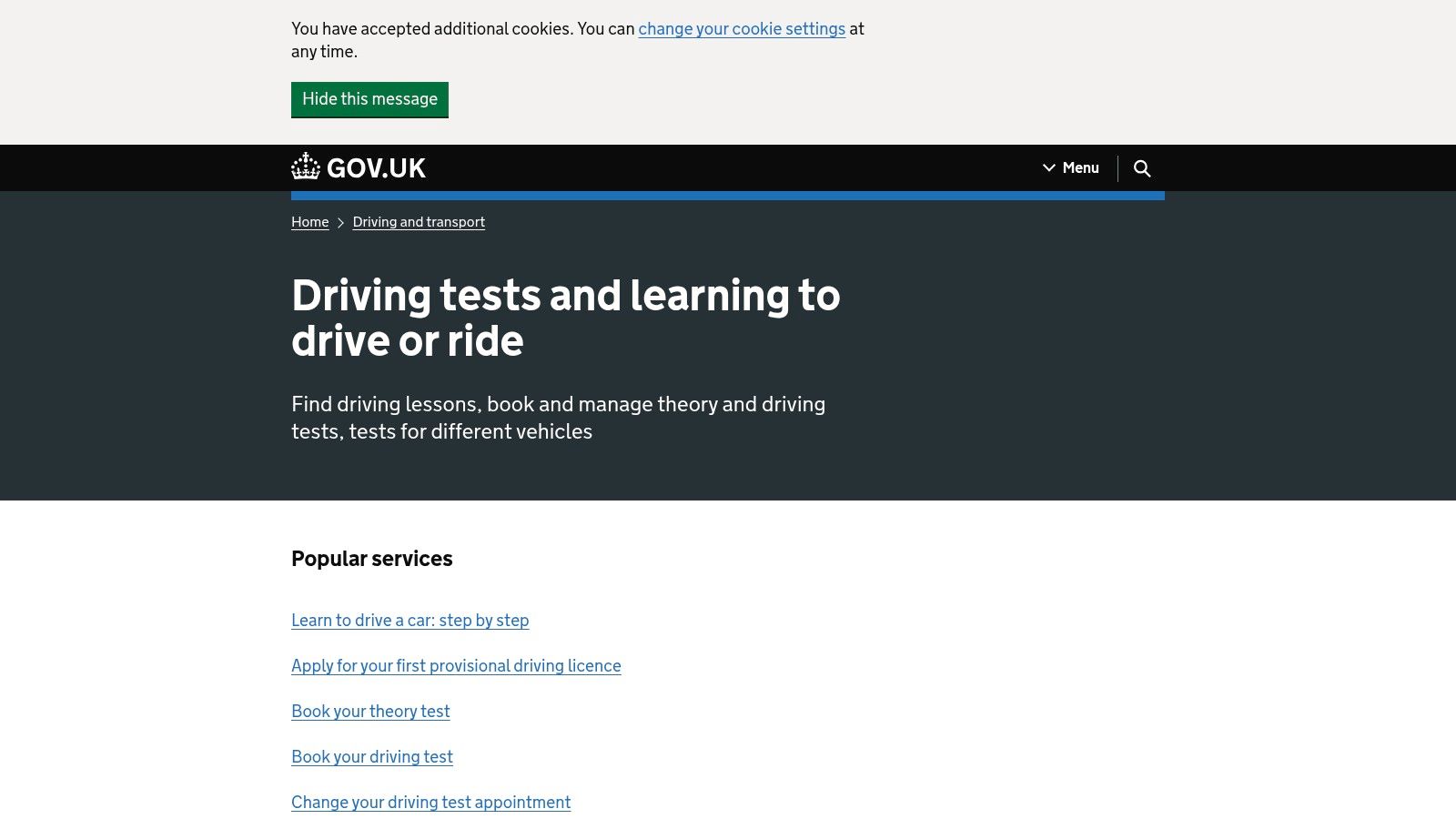
The DVSA’s standardized testing protocols align with UK driving regulations, guaranteeing a fair and consistent evaluation for all learners. Booking your test is handled through the user-friendly GOV.UK platform, allowing you to select a test centre, date, and time that suits your schedule. The wide network of test centres offers flexibility, but availability, especially during peak seasons, can be a challenge. Learn more about Driver & Vehicle Standards Agency (DVSA) Test Centers – UK to understand the historical context of driving test waiting times and prepare yourself for potential delays. While the DVSA strives for consistency, the actual test centre facilities and surrounding road conditions can vary. This is a factor to consider when choosing a location, especially if you’re a nervous driver. Pricing is transparent, with the cost of the theory and practical tests clearly outlined on the website, ensuring no hidden fees. You can also reschedule your test up to three working days before the appointed date, providing some flexibility if your circumstances change. After your test, you'll receive detailed feedback, outlining areas of strength and weakness, which is valuable whether you pass or fail.
Pros:
- Official government testing ensures consistent standards and nationally recognized certification.
- Transparent pricing structure with no hidden costs.
- Flexible rescheduling options up to three working days before the test.
- Detailed feedback provided after the test, aiding in improvement.
Cons:
- Long waiting times, often 2-3 months, are common in popular areas.
- Limited test slot availability, especially during peak seasons, can be frustrating.
- No refunds are provided for missed tests without sufficient notice.
- Test centres can vary in facilities and the complexity of surrounding road conditions.
Website: https://www.gov.uk/browse/driving/learning-to-drive
2. Department of Motor Vehicles (DMV) – United States
The Department of Motor Vehicles (DMV) is the cornerstone of driving licensing and vehicle registration in the United States. While this might not be directly relevant for UK learner drivers taking their tests in the UK, understanding how other systems operate can offer valuable insights. For those considering driving in the US, or perhaps even relocating there, familiarizing yourself with the DMV is essential. Each state operates its own DMV (or similarly named agency like BMV or RMV), offering standardized testing procedures tailored to state-specific traffic laws. They handle everything from standard passenger vehicle licenses to commercial and motorcycle licenses. This makes it a one-stop shop for all your driving-related documentation needs, encompassing licensing, registration, and even ID services.
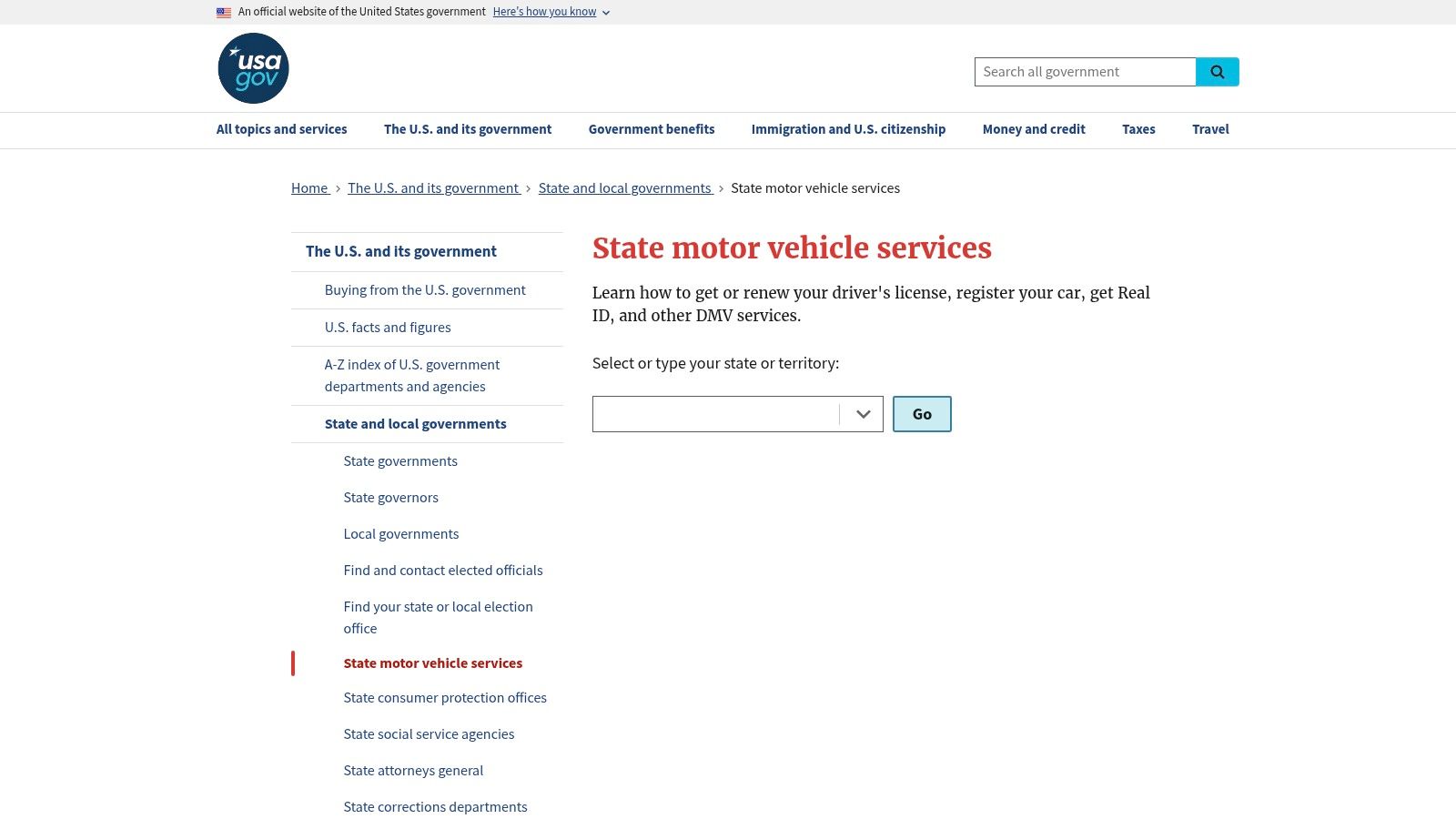
The DMV's standardized written and road tests, based on specific state regulations, ensure a consistent evaluation process. Most states now offer convenient online appointment scheduling systems, and multiple testing locations exist throughout each state. The DMV caters to a wide range of license classifications, ensuring comprehensive testing for every type of vehicle. For those new to the US or unfamiliar with the specific requirements, many DMV locations offer practice tests and study materials. Some even provide interpreter services to assist non-English speakers. Learn more about Department of Motor Vehicles (DMV) – United States to see how a driving test checklist can help with preparation, even if the specific requirements differ.
While the DMV system offers numerous benefits, it also has some drawbacks. Wait times, particularly in densely populated urban areas, can be notoriously long. Furthermore, the quality and efficiency of service can fluctuate significantly between locations. Limited availability of weekend and evening testing slots can pose a challenge for those with busy schedules. Finally, navigating the sometimes complex and varying state-specific requirements can be confusing. While there are no specific "prices" for the tests themselves, fees are associated with obtaining a learner's permit, taking the tests, and ultimately receiving your license. These fees vary by state. Understanding these nuances is vital for anyone planning to drive in the US. This information is particularly useful for UK learners considering international driving experiences or those researching different approaches to driver testing and licensing worldwide.
3. Service Ontario DriveTest Centres – Canada
For those considering a move to Canada, specifically Ontario, understanding the driving license process is crucial. The Service Ontario DriveTest Centres are the sole official provider of driver examinations in the province. Operated by Serco on behalf of the Ministry of Transportation, these centres administer both knowledge (written) and road (practical) tests for all classes of licenses, from cars and motorcycles to commercial vehicles. With 55 full-time and 39 part-time locations across Ontario, they cater to approximately one million customers annually. This makes them a key resource for anyone looking to obtain a driving license in the region. While this information isn't directly relevant for UK drivers in the UK, it's essential for those planning a relocation to Ontario, especially if they intend to drive.
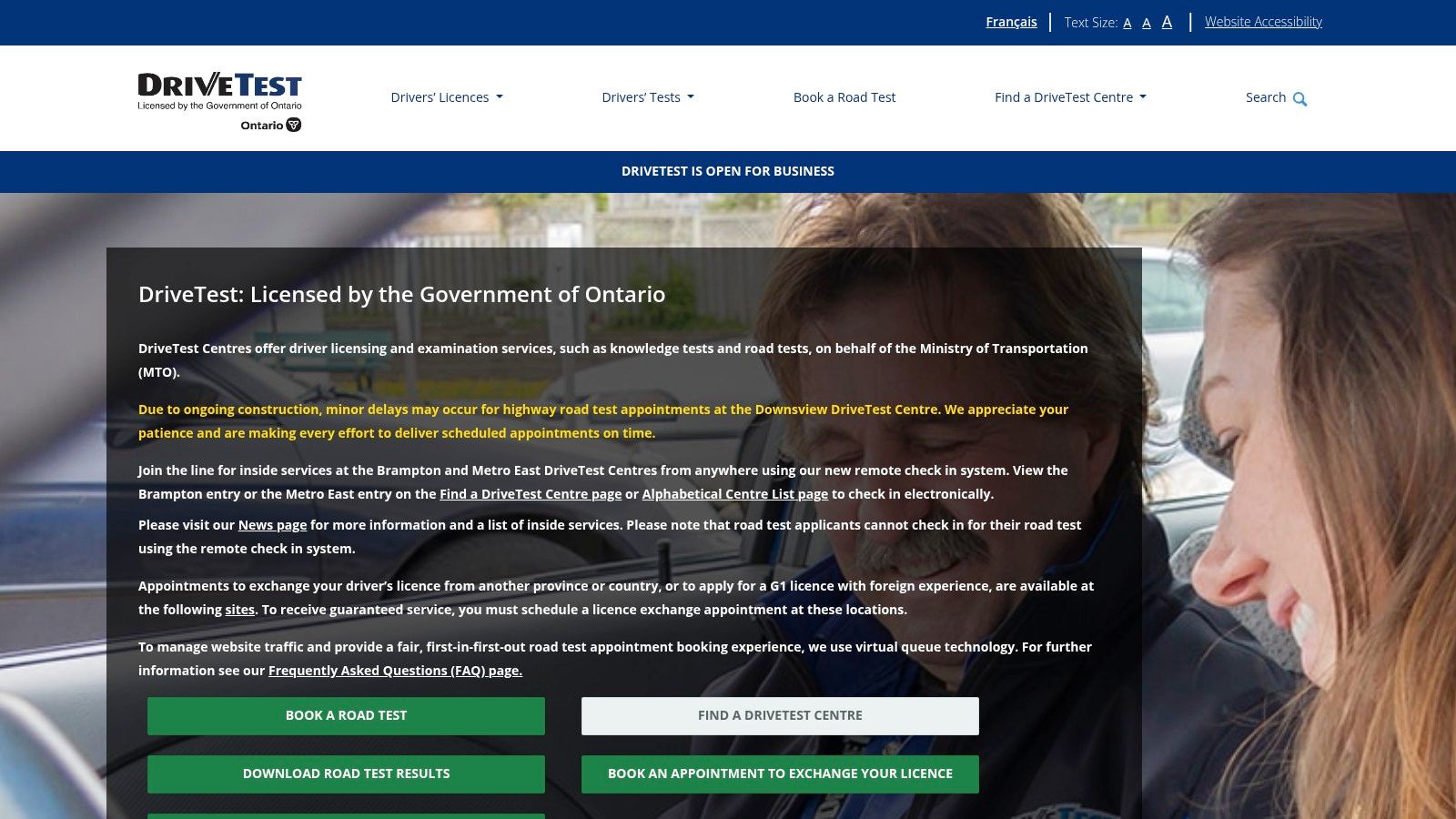
The DriveTest centres manage the province’s graduated licensing system, which comprises a G1 knowledge test, a G2 road test (after a minimum waiting period and fulfilling other requirements), and finally, a G road test for a full, unrestricted license. This structured approach, coupled with standardized testing procedures, aims to equip new drivers with the necessary skills and knowledge for safe driving on Ontario roads. While the UK also has a structured licensing system, the specific tests and requirements differ, making the DriveTest system a unique aspect of driving in Ontario.
The DriveTest system offers comprehensive testing for all license classes (G1, G2, G, and commercial), enabling residents to obtain the necessary credentials for their desired vehicles. The online booking system allows for convenient scheduling of test appointments, although waiting times for road tests can be substantial, particularly in densely populated areas. Services are available in both English and French, catering to the linguistic diversity of the province. Detailed study materials are readily available online to help prospective drivers prepare for the tests.
Pricing: While the DriveTest website provides information on the various fees associated with each license class and test type, it's important to note that these fees accumulate throughout the graduated licensing process. This is a factor to consider for those budgeting for their driving license in Ontario.
For UK Learners Considering Relocation: Service Ontario DriveTest Centres might not be directly comparable to UK driving test centres in terms of immediate use. However, for those among our audience considering a move to Ontario, understanding this system is crucial. The graduated licensing system, testing procedures, and waiting times are all vital information for planning your driving experience in the province. Remember, the DriveTest centres are your gateway to legal driving in Ontario, so familiarizing yourself with their processes is a must.
Pros:
- Clear graduated licensing system with defined progression.
- Multiple locations across Ontario, catering to both urban and rural residents.
- Standardized testing ensures fairness and consistency across the province.
- Comprehensive online resources including detailed study materials.
- Bilingual services (English and French).
Cons:
- Long wait times for road tests, especially in busier locations.
- Limited weekend availability at some smaller centres.
- Cumulative fees throughout the graduated licensing system.
- Reported inconsistency in examiner strictness can create added pressure for test-takers.
Website: https://drivetest.ca/
4. Roads and Maritime Services (Service NSW) – Australia
While not directly relevant for UK learners, understanding different test centre driving systems globally can be insightful, especially if you're considering driving abroad. The Roads and Maritime Services (Service NSW) is the governing body responsible for driver testing and licensing in New South Wales, Australia, and serves as a good example of a comprehensive graduated licensing system. Similar services operate under different names in other Australian states and territories. Their approach focuses on a structured progression through learner, provisional (P1 and P2), and finally, a full driver's license. This staged approach emphasizes safe driving practices for new drivers. The system provides a benchmark against which to compare the UK's driving test procedures.
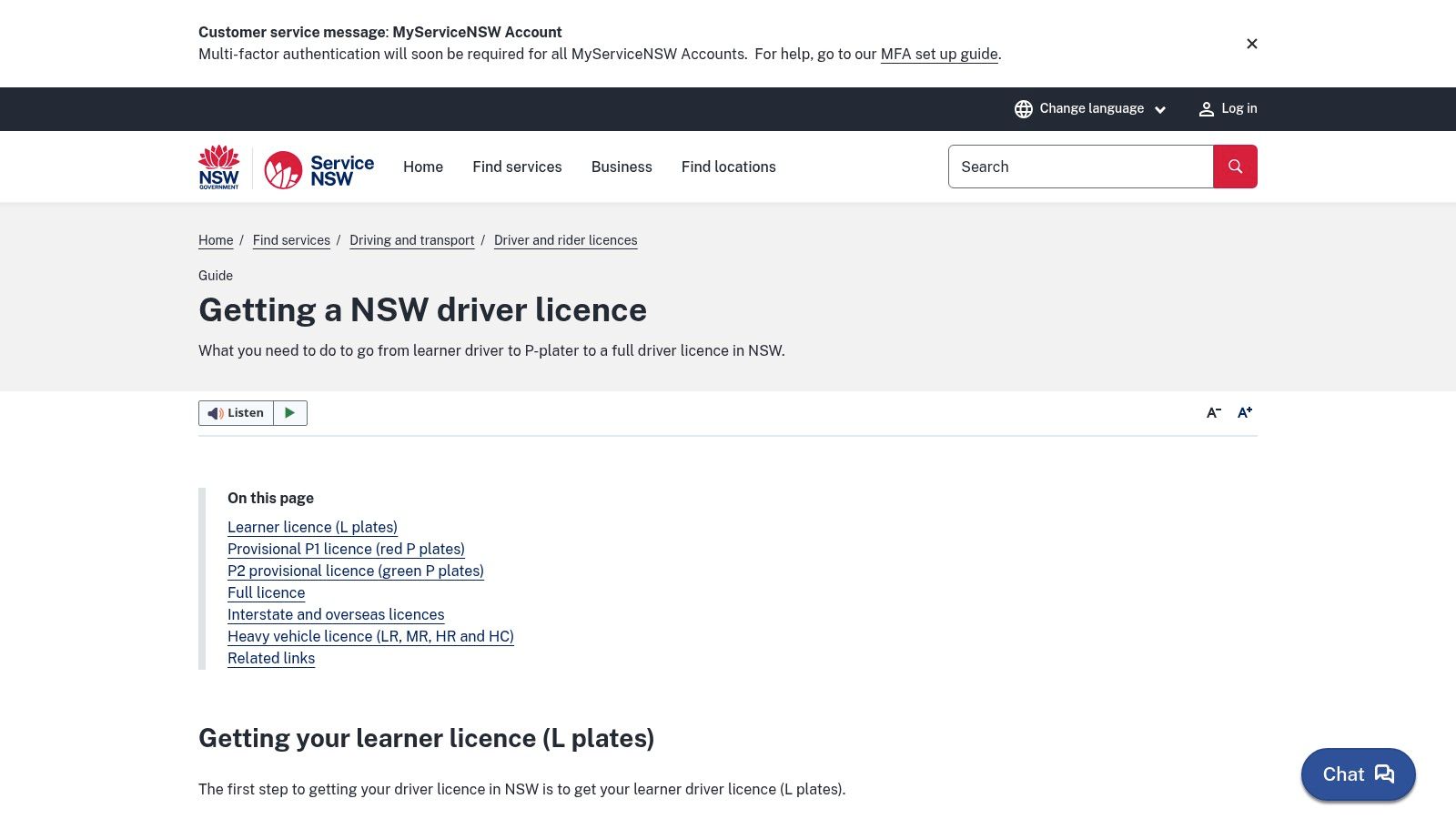
Service NSW offers comprehensive testing for all license classes, encompassing hazard perception testing through computer-based assessments and practical driving tests with standardized evaluation criteria. Their online booking system allows for convenient test appointment scheduling and integrates with vehicle registration services. This integrated approach streamlines the entire process from learning to driving.
For those seeking to improve their driving skills and pass their test on the first attempt in the UK, it's beneficial to understand the principles of structured learning. Learn more about Roads and Maritime Services (Service NSW) – Australia to see how focusing on specific skills and gradual progression can improve driving competency. While the Australian system may have different specific requirements, the underlying principle of structured learning is universally applicable.
The well-distributed test centres throughout metropolitan and regional areas ensure accessibility for learner drivers across New South Wales. The clear documentation of test requirements and procedures, along with the availability of practice resources and preparation materials, helps candidates prepare effectively for their tests.
However, it's worth noting that the tests can be expensive, especially with retakes, a factor that UK learners also face. Waiting times can extend to several weeks in busy areas, mirroring similar challenges seen in the UK's test centre driving system. The strict scoring system with many instant fail criteria and limited test slots outside of business hours are further considerations for prospective drivers in New South Wales. These factors highlight the importance of thorough preparation and efficient use of resources, whether you're preparing for a test in Australia or the UK. For those in the UK, resources like intensive driving courses can help mitigate the impact of waiting times and ensure focused test preparation. You can find more about passing your driving test first time on the linked blog post. Ultimately, understanding the challenges inherent in different systems emphasizes the value of focused preparation and efficient learning strategies for all learners. You can visit the Service NSW website for further details: https://www.service.nsw.gov.au/guide/getting-nsw-driver-licence
5. TÜV (Technischer Überwachungsverein) – Germany
For UK residents considering obtaining a German driving licence, understanding the German testing system is crucial. TÜV (Technischer Überwachungsverein), alongside DEKRA, is one of the primary organizations responsible for conducting driving tests in Germany. They operate as a technical inspection association, delivering standardized testing across various federal states for all driving license classes, from standard cars to specialized commercial vehicles. This makes them a key component in the German driving license landscape and relevant for anyone looking to drive in Germany. This includes those seeking initial licensure, as well as those needing to convert an existing UK license to a German one.
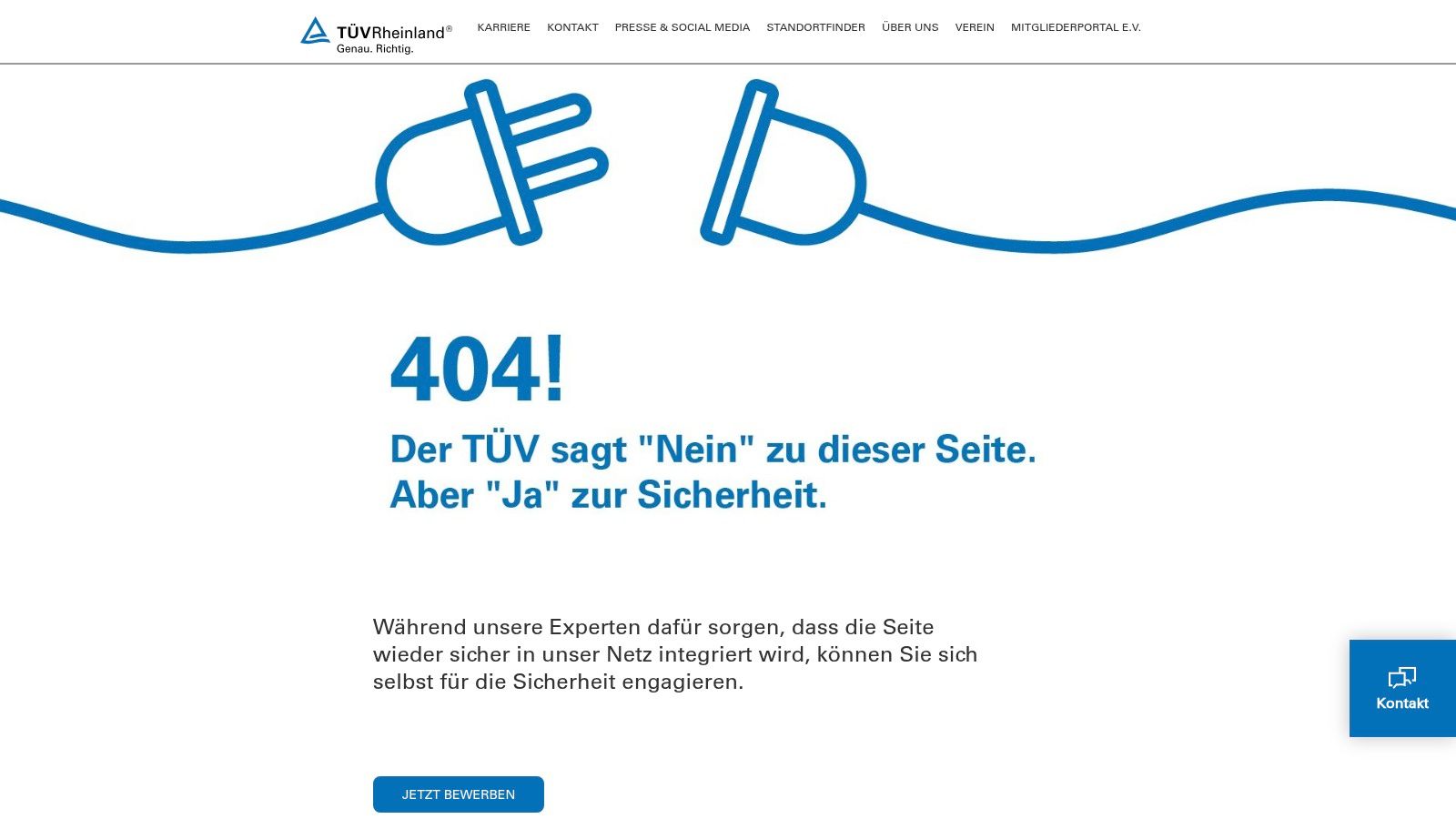
TÜV's involvement in the process begins after the completion of mandatory driving school training, which includes both theoretical and practical instruction. The theoretical exam, typically computer-based and available in multiple languages, evaluates the driver's knowledge of traffic laws, road signs, and safe driving practices. The practical examination involves a real-world road test assessing the applicant's ability to handle a vehicle safely and confidently in various traffic conditions. The integration with driving schools ensures consistent training and assessment, aligning with Germany’s stringent driver education standards. This makes TÜV a critical part of the "test centres driving" landscape in Germany.
Features and Benefits:
- Multilingual Theoretical Tests: A significant advantage for non-German speakers, reducing the language barrier for UK residents obtaining a German license.
- Real-World Practical Tests: Prepares drivers for actual road conditions, leading to safer and more competent drivers on German roads.
- Comprehensive License Coverage: Caters to all license classes, including motorcycles, cars, and commercial vehicles, offering a one-stop solution for all driving test needs.
- Standardized Testing Protocols: Ensures consistency and fairness across different testing centers, providing a reliable and transparent evaluation process.
Pros:
- High Standards: Known for rigorous evaluation, contributing to safer roads in Germany.
- Multiple Locations: Offers convenience and accessibility across Germany for UK residents pursuing a German driving licence.
- Consistent Procedures: Creates well-prepared drivers due to standardized practices.
Cons:
- Cost: The combined cost of mandatory driving school and testing can be substantial, posing a financial hurdle for some UK residents. While specific pricing is not readily available and varies, it's advisable to budget significantly.
- Strict Criteria: High failure rates for first-time test takers can be discouraging, and retakes add to the overall expense.
- Scheduling: Securing test appointments can sometimes be challenging and requires coordination with the driving school.
Implementation/Setup Tips for UK Residents:
- Research Driving Schools: Identify a reputable driving school that meets your needs and coordinates with TÜV.
- Language Considerations: Check the availability of theoretical tests in English or your preferred language.
- Plan Ahead: Allow ample time for completing the mandatory driving school hours and scheduling tests, considering potential waiting times.
Comparison: While similar to the UK driving test structure in some respects, the German system, particularly with TÜV's involvement, is known for its higher standards and rigor. This is crucial for UK residents to understand when preparing for a German driving licence.
Website: https://www.tuv.com/germany/en/driving-license.html
TÜV's role as a key player in German driving licence testing makes it an essential consideration for anyone, including UK residents, seeking to drive legally in Germany. The stringent processes and high standards, while demanding, contribute to well-prepared drivers and safer roads.
6. SAAQ (Société de l'assurance automobile du Québec) – Canada
The Société de l'assurance automobile du Québec (SAAQ) is the sole entity responsible for driver licensing and testing in Quebec, Canada. It plays a crucial role in ensuring road safety by administering both knowledge and road tests for all license classes, operating under Quebec's graduated licensing system. For UK residents considering moving to Quebec or obtaining a license there, understanding the SAAQ system is essential. This makes it a relevant entry on this list for those exploring diverse test centres driving options.
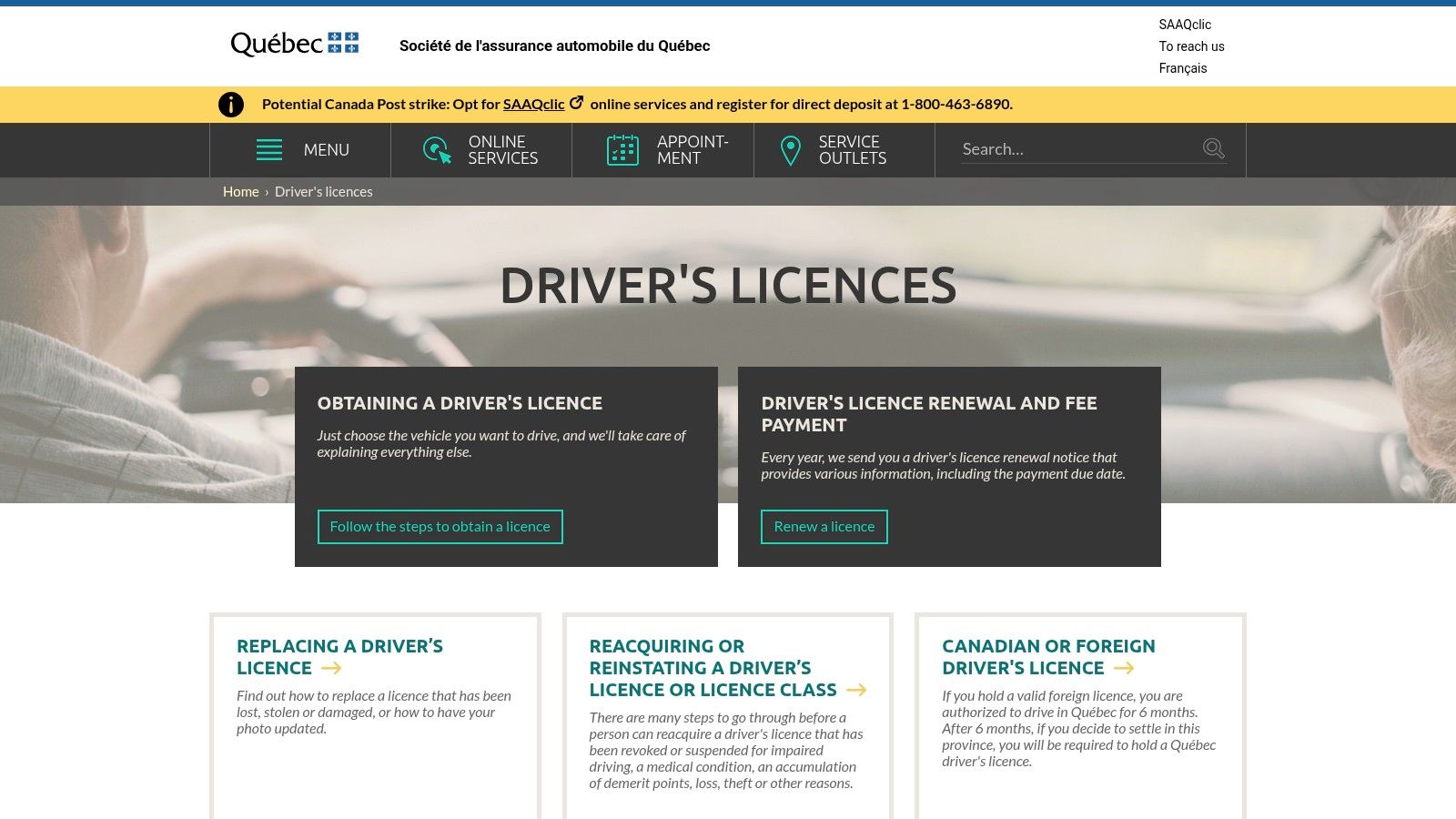
The SAAQ operates numerous service centres throughout the province, providing comprehensive driver evaluation services. Its standardized procedures ensure a consistent testing experience across different locations. This standardized approach makes it a good benchmark for comparing driving test procedures internationally.
Features:
- Bilingual Testing: Tests are available in both French and English, catering to Quebec's bilingual population.
- Comprehensive Testing: The SAAQ covers all license classes, from motorcycles to heavy vehicles.
- Graduated Licensing Integration: The testing process is fully integrated with Quebec's graduated licensing system, ensuring new drivers progress safely through different stages.
- Multiple Locations: Service centres are distributed throughout Quebec, making access convenient for most residents.
- Standardized Procedures: Standardized knowledge and road tests ensure fairness and consistency in evaluation.
Pros:
- Bilingual Services: Accommodates both English and French speakers.
- Accessibility: Numerous test centres driving locations facilitate access across the province.
- Standardized Evaluation: Consistent testing experience minimizes regional variations.
- Integrated Services: Links with vehicle registration and insurance streamline administrative processes.
Cons:
- Long Wait Times: Road test waiting lists can be lengthy, particularly in urban areas like Montreal and Quebec City.
- Strict Winter Conditions: Winter road tests can be challenging for new drivers unaccustomed to driving in snow and ice. This is a significant consideration for UK drivers migrating to Quebec.
- Limited Availability: Many centres have restricted weekend and evening hours, potentially creating scheduling difficulties.
- Higher English Failure Rates: Anecdotal evidence suggests higher failure rates for English tests, potentially due to translation issues.
Implementation/Setup Tips:
- Book your knowledge and road tests well in advance, especially during peak periods.
- Practice driving in winter conditions if you are not familiar with them.
- Be prepared for potential language barriers if you are taking the test in English. Ensure you thoroughly understand the questions and instructions.
- Familiarize yourself with the SAAQ's website and resources for detailed information about the licensing process.
Pricing: Fees for knowledge and road tests vary depending on the license class. Check the SAAQ website for the most up-to-date pricing.
Website: https://saaq.gouv.qc.ca/en/drivers-licences
The SAAQ, while presenting certain challenges, provides a comprehensive and standardized approach to driver testing. Its integration with Quebec's graduated licensing system and its multiple locations across the province make it an essential resource for anyone seeking a driver's license in Quebec. However, UK learners should be mindful of the potential for long wait times and the challenges posed by winter driving conditions.
7. Land Transport Authority (LTA) Test Centres – Singapore
Singapore boasts a highly regulated and rigorous driving environment, overseen by the Land Transport Authority (LTA). While the LTA doesn't conduct the tests themselves, they delegate this responsibility to three authorized test centres: ComfortDelGro Driving Centre, Singapore Safety Driving Centre, and Bukit Batok Driving Centre. This centralized, standardized approach ensures all drivers are held to the same high standards, making Singapore's roads some of the safest in the world. This makes understanding the LTA's role crucial for anyone researching test centres driving, especially if considering Singapore as a benchmark.
For UK learners, particularly those aiming for rapid, structured tuition and a first-time pass, understanding the Singaporean system offers valuable insights. The LTA's stringent requirements and standardized testing highlight the importance of thorough preparation and consistent performance. This rigorous approach, though potentially daunting, produces highly skilled and competent drivers. Those retaking tests after a failure in the UK may find the structured feedback mechanisms offered by Singaporean test centres particularly helpful in identifying areas for improvement.
Features and Benefits:
- Comprehensive Testing: The LTA mandates comprehensive theory and practical tests for all license classes, covering everything from motorcycles to heavy goods vehicles. This comprehensive approach ensures drivers are fully prepared for the complexities of the road.
- Standardized Procedures: Standardized circuit and road testing under stringent evaluation criteria ensures consistency and fairness across all test centres. This contrasts with the UK where some perceive variations in testing standards between different centres.
- Modern Facilities: State-of-the-art facilities with purpose-built testing circuits provide a realistic and controlled environment for evaluating driving skills. These advanced facilities often surpass those found in many UK test centres.
- Integration with Driving Instruction: The LTA system integrates seamlessly with mandatory driving instruction requirements, ensuring learners receive comprehensive training before taking their tests.
- Multilingual Support: Computerized theory testing systems with multiple language options cater to Singapore's diverse population, a feature that could be beneficial for UK test centres given the country's increasing multilingualism.
Pros:
- World-class Facilities and Standards: The LTA's oversight ensures consistent, high-quality testing facilities and standards across all approved centres.
- Detailed Feedback: Test centres provide detailed feedback on driving performance, enabling learners to identify weaknesses and improve their skills.
- High Technical Standards: The rigorous testing procedures contribute to producing highly skilled and well-prepared drivers.
- Transparent Process: Clear evaluation criteria and transparent testing processes ensure fairness and accountability.
Cons:
- High Cost: The combined cost of mandatory lessons and testing in Singapore is significantly higher than in the UK. While the quality is undeniable, the financial burden is substantial.
- Strict Pass/Fail Criteria: High first-attempt failure rates are common due to the stringent evaluation criteria. This can be demotivating for some learners.
- Long Waiting Times: Expect significant waiting times (often 1-2 months) for test slots due to high demand. This could be problematic for UK learners seeking rapid test completion.
- Limited Test Centre Locations: The limited number of test centres may necessitate significant travel for some residents, a factor also relevant to UK learners living in rural areas.
Pricing and Technical Requirements: While specific pricing information is not readily available on the LTA website, it's widely known that Singapore's driving courses and tests are amongst the most expensive globally. Technical requirements regarding vehicle specifications and documentation are meticulously detailed by the individual test centres and should be consulted directly.
Implementation/Setup Tips (for considering the Singapore model): While directly replicating the Singaporean system in the UK may not be feasible, certain aspects, like standardized testing procedures, detailed feedback mechanisms, and integration with driving instruction, could be adopted to enhance the quality and consistency of driver training and testing.
The LTA's approach to test centres driving provides a compelling example of how rigorous regulation and standardization can contribute to producing highly skilled and competent drivers. While the high costs and long waiting times may be drawbacks, the emphasis on quality and thoroughness makes the Singaporean system a valuable point of reference for anyone interested in improving driving standards. For UK learners, especially those prioritizing structured learning and detailed feedback, understanding the LTA's role and the operations of Singaporean test centres can offer valuable insights into best practices in driver training and assessment.
Driving Test Centres Comparison Guide
| Test Provider | Core Features & Certification | User Experience & Quality ★ | Value & Pricing 💰 | Target Audience 👥 | Unique Selling Points ✨ |
|---|---|---|---|---|---|
| DVSA Test Centers – UK | Standardized UK tests, wide network, multi-license | ★★★☆☆ Long waits, detailed feedback | 💰 Transparent fees, no refunds | New & retake drivers UK | 🏆 Official GOV.UK booking, test slot fast-track |
| DMV – United States | State-specific tests, multi-service agency | ★★☆☆☆ Varied quality, long waits | 💰 Free to moderate, varies by state | US drivers, multi-license types | ✨ Interpreter services, 1-stop licensing hub |
| Service Ontario DriveTest Centres – Canada | Graduated licensing, bilingual testing | ★★★☆☆ Long waits, consistent fairness | 💰 Fees add up through stages | Ontario learners & drivers | 🏆 Online booking, G1-G licences |
| Roads & Maritime Services – Australia | Graduated licenses, hazard perception tests | ★★★★☆ Thorough but strict scoring | 💰 Higher cost with retakes | NSW drivers & new drivers | ✨ Computer-based hazard test, regional centers |
| TÜV – Germany | Rigorous tests, integrated with driving schools | ★★★★☆ High standards, multiple languages | 💰 Expensive, requires driving school | German drivers & commercial | 🏆 Multilingual, standardized nationwide |
| SAAQ – Québec, Canada | Bilingual, provincial system, comprehensive | ★★★☆☆ Long waits, winter conditions | 💰 Moderate fees | Québec drivers | ✨ Bilingual testing, insurance integration |
| Land Transport Authority (LTA) – Singapore | Comprehensive, strict & computerized tests | ★★★★☆ High tech, strict pass criteria | 💰 Very expensive combined testing | Singapore motorists | 🏆 State-of-art facilities, multi-language tests |
Ready to Hit the Road? Your Driving Test Journey Starts Now
From understanding the nuances of DVSA test centres driving here in the UK to exploring international equivalents like the DMV in the US or TÜV in Germany, this guide has provided a comprehensive overview of driving test centres worldwide. We've covered everything from the specific requirements of various countries to the importance of choosing the right tools and resources to prepare. Remember, the key takeaways are to research your local test centre procedures thoroughly, practice diligently, and choose resources that align with your learning style and needs. For instance, learners in the UK preparing for their practical driving test should familiarise themselves with the specific DVSA test centre they'll be attending. Similarly, those considering intensive courses need to choose reputable providers with a proven track record.
Whether you're a beginner learner, retaking your test, or searching for the perfect gift, selecting the right tools and support can significantly impact your success. Consider factors such as your budget, learning style, and the specific requirements of your local test centres driving process. If you're juggling multiple responsibilities, like managing a property portfolio, optimizing your time becomes crucial. Streamlining processes, even outside of driving, can be incredibly beneficial. For example, exploring resources on efficient commercial property management can free up valuable time and energy.
Now is the time to take control of your driving journey. For UK learners seeking rapid, structured tuition and a streamlined path to their driving license, consider Fast Pass Driving Courses. We specialise in fast-tracked testing and tailored instruction, helping you navigate the complexities of test centres driving with confidence and efficiency. Get started today and make your driving dreams a reality!

